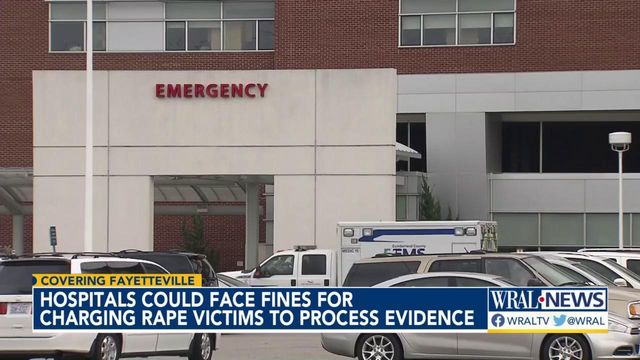Woman sues San Francisco over arrest based on DNA from her rape kit
A woman whose DNA from a rape kit was used by the police to arrest her in connection with an unrelated property crime last year filed a federal lawsuit against the city of San Francisco on Monday, saying that the Police Department had engaged in an “unconstitutional invasion of privacy.”
The DNA of the woman, who is identified only as Jane Doe in the lawsuit filed in federal court, was provided to the police in 2016 as part of its investigation into her sexual assault, the lawsuit states. About five years later, however, officers used that DNA to charge her with retail theft, her lawyer, Adante Pointer, said in an interview Monday.
Without her knowledge or consent, Pointer said, her DNA was placed into a database that was used to identify people as possible suspects in other crimes — a practice that the San Francisco Police Department repeated with other sexual assault victims. The Board of Supervisors in San Francisco approved an ordinance this year that prohibits the Police Department from identifying suspects by using DNA from a rape kit.
The woman’s case led to the revelation of the Police Department’s practice earlier this year after the city’s district attorney at the time, Chesa Boudin, became aware of the woman’s arrest and declined to prosecute her. At a news conference in February, Boudin described how other victims had been treated “like evidence, not human beings.”
The woman, whose suit seeks unspecified damages, is now trying to hold the city accountable, Pointer said.
“The exchange is you’re going to use this DNA for a specific purpose, which is to prosecute the person who violated me,” Pointer said. “And instead, the police turned into the violators here.”
Alex Barrett-Shorter, a spokesperson for the city attorney in San Francisco, David Chiu, said in a statement that the city “is committed to ensuring all victims of crime feel comfortable reporting issues to law enforcement and has taken steps to safeguard victim information.”
She added that “once we are served, we will review the complaint and respond appropriately.”
The San Francisco Police Department said in a statement that it does not comment on pending lawsuits.
Pointer said that for his client, a Black woman, the experience had underscored how women of color “are often targeted by the criminal justice system.”
“Their civil rights are trampled upon, repeatedly and continuously,” Pointer said. “So that’s another part of this: Making sure that we stand up for people in this society who oftentimes don’t have their rights respected.”
The woman’s case underscored the myriad challenges that victims of sexual assault confront when attempting to seek justice. And it came as officials across the country continue to try to address the problem of untested rape kits — a pattern that has angered rape victims and their advocates, who have bristled at the possibility that evidence is lying dormant in storage as attackers remain free.
Pointer said that the case against the man accused of sexually assaulting his client was ultimately dismissed.
Lawmakers in California approved a bill last month that would prohibit law enforcement agencies from using the DNA of sexual assault survivors for any reason other than identifying the perpetrator of the crime. The bill now awaits Gov. Gavin Newsom’s signature.
Dan Krane, a biology professor at Wright State University in Dayton, Ohio, who has researched tools to evaluate DNA evidence for criminal investigations, said by phone Monday that federal law prohibits DNA from rape victims from being included in the national Combined DNA Index System. He noted, however, that in general there is a dearth of state and local laws that restrict what can be done with local DNA databases.
Most law enforcement agencies that work with such databases, he said, are like “stamp collectors” when it comes to collecting DNA.
“The more people they can get in the database,” Kane said, “the happier they are.”
Pointer said that his client felt lucky that the district attorney in San Francisco had looked into her case and dismissed the charge.
“You’d think this is some type of sci-fi movie,” he said. “But it’s real life.” This article originally appeared in The New York Times.











